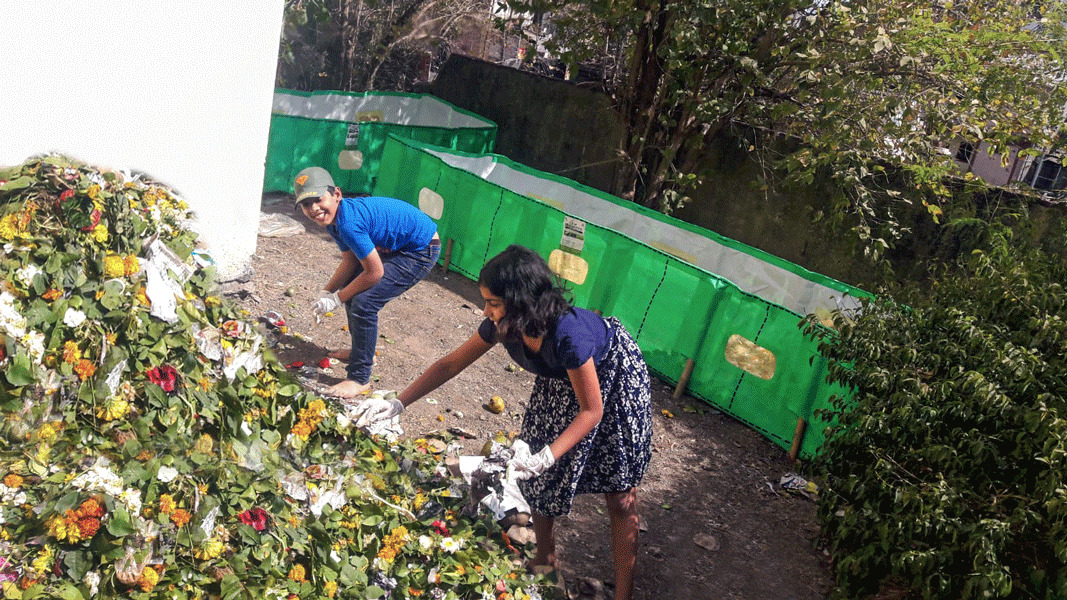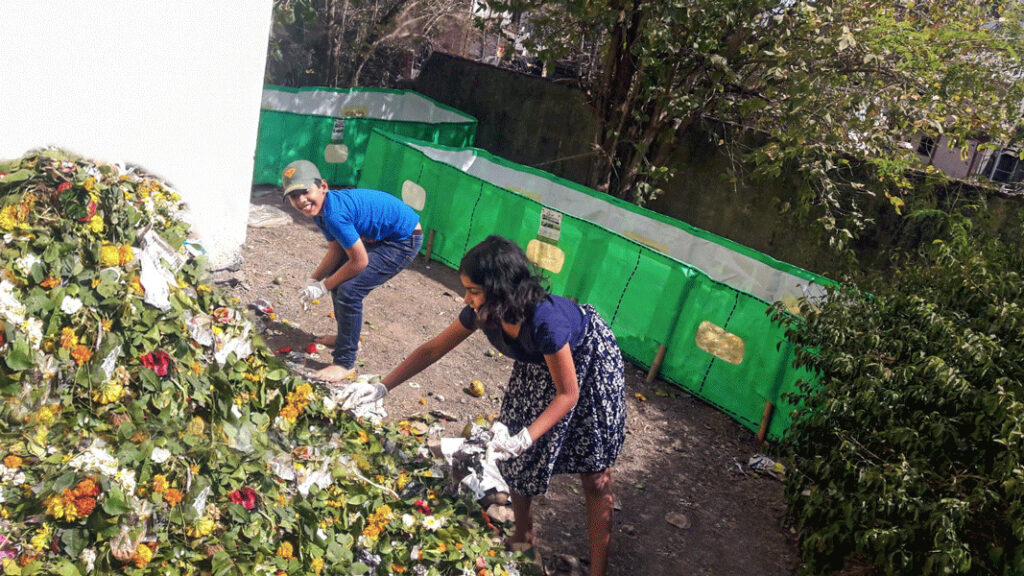In Nashik, dried flowers used in weddings and places of worship are now finding a new use thanks to an initiative of RC Nasik Godavari, RID 3030. The club has installed collection drums at various places for people to drop used or unsold flowers from flower markets or flower farms. These flowers are recycled and used to make eco-friendly incense sticks, dyes and as organic vermicompost.

Nashik is a temple city on the banks of the River Godavari. Devotees flock to these temples with lots of flowers in the form of garlands to be offered to the gods and for pooja rituals. “Hardly anyone gives a thought to what happens to these flowers at the end of the day. Tonnes of used flowers removed from idols and unsold flowers from the market are dumped into the river, polluting it. Pesticides and insecticides used to grow these flowers make the river water highly toxic,” says club president Rakesh Singhal.
When club member Dipti Janorkar put forth an idea from the Shirdi Saibaba temple to recycle the huge quantity of flowers the club eagerly accepted it. “Dipti had visited their flower processing unit during her visit to Shirdi. The Saibaba temple gets at least 800kg of flowers daily as obeisance from devotees,” says Singhal.
The club has employed few women to segregate the collected flowers. “They separate the petals from the flowers which are then sun-dried and powdered, and used to make charcoal-free agarbattis, dhoop and dyes. The stalks and the not-so-fresh flowers are collected in composters to make vermin compost.”
All the produce from the recycled flowers is sold in the market and the money generated is used to meet the project expenses, including paying the women engaged in this activity, says the club president. “This project also benefits marginalised women, giving them not only a financial benefit but also dignity and respect. At the same time, the environment benefits too,” he smiles. The club is all set to scale up this initiative, by including nearby villages soon.






